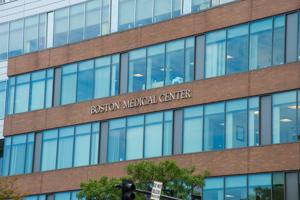BMC’s Division of Adolescent Medicine is a medical home to adolescents and young adults ages 14 to 25. The division provides primary care and hosts subspecialty programs in areas such as addiction and substance use, family planning, gender care, menstrual disorders, and parent–child one-stop care for youth who are parents. An interdisciplinary team—comprised of adolescent medicine fellowship–trained physicians, providers with strong adolescent medicine expertise, adolescent medicine nurses, social workers, a family planning counselor, a patient navigator, and a practice coordinator—provides wraparound services to address the unique needs of adolescents and young adults.
Location and Contact
Department of Pediatrics
Monday – Thursday 8 a.m. to 8 p.m., Friday 8 a.m. to 5 p.m., and Saturday 8:30 a.m. to 12 p.m.
Related Departments and Programs
Pediatric Primary Care
Aftercare Clinic
CATALYST Clinic
CATCH - Child and Adolescent Transgender Center for Health
Family Planning Clinic
Menstrual Disorders Clinic
Teen and Tot Program

Education and Training
The Division of Adolescent Medicine is a primary training site for pediatric residents in the Boston Children’s Hospital/Boston Medical Center Boston Combined Residency Program (BCRP) and is home to a fourth-year medical student elective for students at the Boston University Chobanian & Avedisian School of Medicine.
Residents in family medicine and in the combined family medicine/psychiatry program, as well as fellows in addiction medicine and endocrinology, regularly rotate through the division.

Adolescent Medicine Research Overview
Adolescent Medicine faculty participate in research activities through the Youth Advocacy and Research Collaborative or the Pediatric Health Services Division.
Current research in the Adolescent Division includes the Youth Overdose Prevention Study, which aims to create a brief, universal overdose prevention intervention for youth that can be delivered during their annual physical exam. In the initial phase, the team worked with a community advisory board of local stakeholders to design an anticipatory guidance intervention. The intervention will be piloted in a randomized control trial at BMC, and that data will be used to develop a larger-scale trial.
In addition, researchers are participating in the PrEP/Apretude Adherence study, which uses innovative smartphone gaming apps and guided text messages to measure adherence in adolescents and young adults who have recently started or restarted pre-exposure prophylaxis (PrEP) against HIV.


